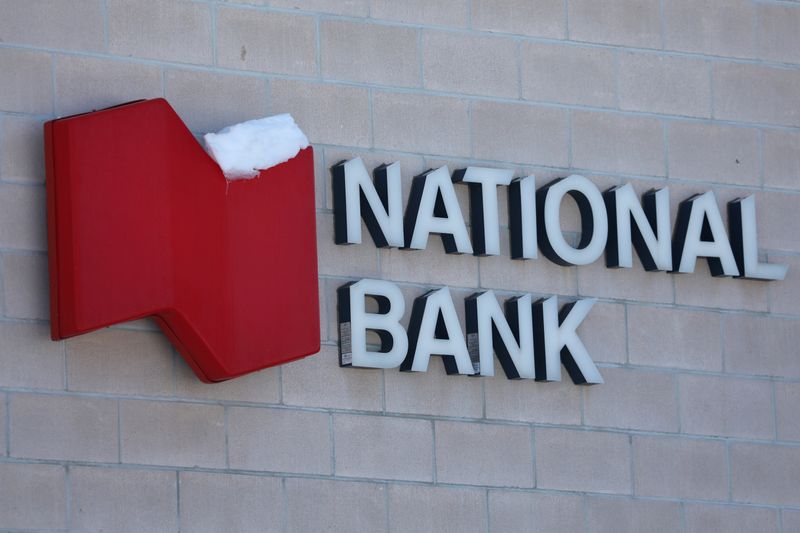By Nichola Saminather
TORONTO (Reuters) - Canadian banks' first-quarter outperformance, driven by volatile trading and advisory revenues, is unlikely to continue for the rest of 2020, particularly as interest rates remain low and the coronavirus outbreak clouds the outlook, investors said.
TD Bank Group (TO:TD) on Thursday became the only major Canadian lender to miss first-quarter profit estimates, as strong capital markets revenue, which drove better-than-expected earnings at rivals, failed to offset weakness elsewhere.
"The strength of (Canadian banks') results came ... from an area that’s very lumpy and difficult to repeat," said Kash Pashootan, chief executive officer of First Avenue Investment Counsel. "We see a continued slowdown in personal and commercial banking, with the Canadian and U.S. economies in very late stages of expansion."
Canadian banks have been increasing loan loss provisions in preparation for a contraction, when writeoffs are likely to increase, he added.
TD's earnings miss was driven by an 8% drop in U.S. retail income, in part due to falling net interest margins, following other banks whose U.S. margins also declined.
TD shares fell 3.1% in early afternoon trade in Toronto, while the banks index <.GSPTXBA> lost 1.9%, compared with a 1.5% decline in the Toronto stocks benchmark (GSPTSE).
The rest of the year will "continue to show the effects" of the Federal Reserve's three interest rate cuts last year, TD Bank Chief Financial Officer Riaz Ahmed told Reuters, adding that margins will remain at current levels or move lower over the next quarter.
The expectation at the beginning of 2020 was that the Fed would not cut rates this year, said Laura Lau, chief investment officer at Brompton Group, who expects earnings growth of 3% for the banks in 2020.
"But now, there's more and more expectation that the Fed, because of coronavirus, will cut again," she said. "If they do, interest margins could have another leg down."
Second-quarter earnings will be lower because uncertainties around rail blockades in Canada and the coronavirus outbreak are likely to hurt borrowing, Lau added.
High debt levels in Canada will also continue to weigh on growth, said Allan Small, senior investment adviser, Allan Small Financial Group with HollisWealth, who expects 2020 earnings to increase at a rate similar to last year's 3%-4%.
But recovering home prices, as well as a change to the mortgage stress test that could reduce the qualifying rate for borrowers, could help lift lending at home, he said.
"Last quarter, we started to see early cracks but they were more than offset by capital markets and wealth management," Pashootan said. "But it's no surprise to anyone that growth is slowing."

($1 = 1.3286 Canadian dollars)